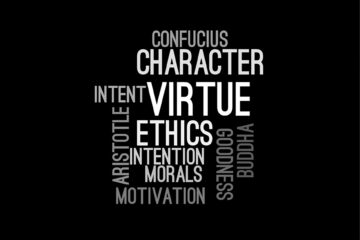![]()
Introduction:
Legal theorist have been intrigued since the dawn of the theories of natural law about the conducive relationship between morality and law. For them, there is a conservative morality to the sphere of law, incapable of articulating the task of adopting a vision of legal fields that is non-exclusionary in nature.
Essentially the reason for such a bleak approach lies within the human behaviour, being rational and social, requiring constant group affiliation and the resultant interdependence. Thus when in a scarce society where everyone cannot have each and everything the individualism of a person is bound to generate a conflict of interests, giving a great degree of variation the ideals of a person and his attached morals
Relationship
The relationship between law and morality is more casual and approach than being logical in character this can be attributed simply because the law has never been derived logically from moral agreements principles that have been accepted by a society. Moreover, the law comes from legislatures who are in consensus about things either being wrong or right. Morality is brought exactly at that point where laws aren’t needed to be articulated to the fundamental truths being inclined towards morals. The exact reason is that because morals are needed only to agree upon policies and the consequences based upon them.
So by the above definition morality becomes very intimately involved in the changing and making of laws of the land, order to clarify the relationship between morality and law, it is necessary to define both concepts precisely, but the cultural realities make it very difficult to determine and explain, therefore there is never any acknowledgement of a model theory that has been or would be binding or occupies constitutional status. This is because of the fact that “in The Concept of Law, H.L.A. Hart suggested that four formal features of morality distinguish it from law: importance, immunity from deliberate change, the nature of moral offences and the form of moral pressure” and clearly none of them clearly distinguishes law from morality.
Therefore morality is involved in the changing and making of law but not directly in the sense of what Hart considered as the fifth feature of morality, the role that morality plays in practical reasoning because the view of the citizens should work themselves in the process through legislative compromises. Still, sometimes severe difference in morality makes these types of compromises lest difficult than impossible such as the issues of abortion in various countries, therefore the pluralist integrity can only be preserved if there is political resolution.
The above-endorsed view has not been shied away from critic particularly from Ronald Dworkin, a legal philosopher who argues that Constitution and laws are deeply rooted in the moral principles and the political jargon he finds that the principle of equality has been sulking behind and therefore needs to be accorded with the status of a legal rule that is fundamental and constitutional
Enforcement
There is a prudent approach that judges have no business in getting through the matters of personal morality, true but limited in approach as nothing can be more ridiculing to the position of a judge than defences punishing the forms of immorality, howsoever the one such light peek is the interpretation of the law, in the context of pluralistic ideas of liberty and fundamental moral principles of equality, so as that the more amoral conduct can be controlled. At this juncture, it is important the role law play in a society establishing a control, because the practises and moral beliefs needs to be protected as once the shreds holding the society are unravelled the society would turn into a chaotic system, controlled by power agonistic individuals.
Conclusion
There was an idea and modest claim through the introductory part hinting that a claim for morality is not logically sound for state and its implementation of the policy. It can be said that such an approach was aggravated by the fact that state must be free from a dictatorial moral theory, to whom the judges would be bound per se but under the current social scenario it seems best that rule of law should be there and protected by a strong constitutional framework, relationships and freedom would be treated as equals.



0 Comments